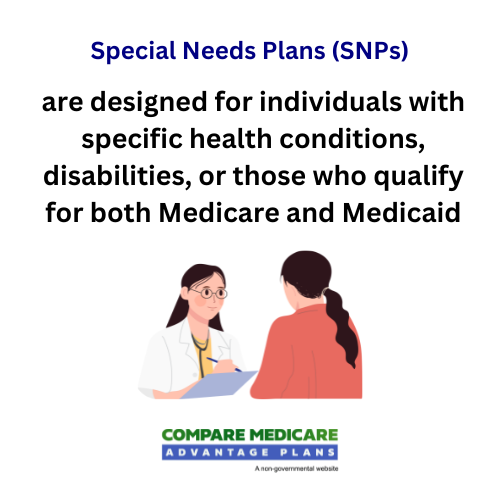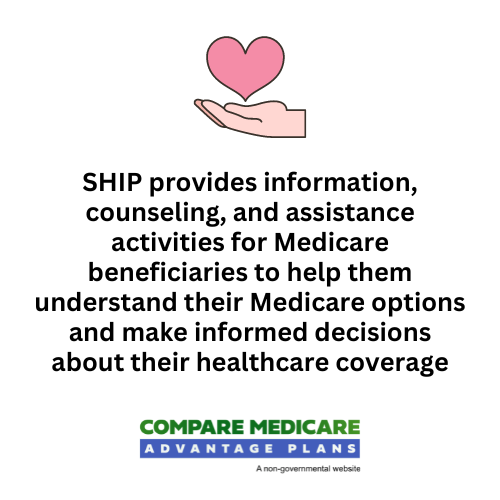Best Medicare Advantage Plans New York 2025
If you are considering Medicare Advantage plans in New York for 2025, then you’re in the right place!
Our website helps you compare Medicare Advantage plans in your area side-by-side and even enroll online yourself once you find the right plan.
And, you’re not alone. With a vast array of benefits and options, these plans have become increasingly popular among Medicare beneficiaries.
In this comprehensive guide, we’ll take you through the ins and outs of Medicare Advantage plans in the Empire State, helping you make an informed decision for your healthcare needs.
Let the journey begin!
Key Takeaways
- Navigating Medicare Advantage Plans in New York can be made easier with the help of available resources and assistance.
- Choosing the right plan involves researching coverage options, premiums, ratings from various companies, and understanding costs.
- Assistance is available to help individuals select a suitable plan for their needs.
Compare Plans in New York Now!
Enter Zip Code
Navigating Medicare Advantage Plans in New York
Choosing among the many Medicare Advantage plans in New York might seem like a daunting task. However, you’re not alone.
More than half of the state’s Medicare beneficiaries are enrolled in these plans. Numerous resources and assistance are at your disposal to help you select the ideal health coverage.
New York offers a diverse range of Medicare Advantage plans, each with its unique features and benefits.
From HMO to PPO plans, these alternatives to Original Medicare provide additional benefits and coverage through private insurance companies.

Comparing Medicare Advantage plans and their benefits is a key step in finding the one that best suits your needs. Consider factors like network coverage, prescription drug benefits, and extra services.
Defining Medicare Advantage (Part C)
Medicare Advantage, also known as Medicare Part C, is a type of health insurance offered to certain people in the US. Eligible individuals are those aged 65 and over, as well as those with certain disabilities or health conditions.
Medicare Part C plans provide all the benefits of Original Medicare but may often include additional perks, such as:
- Routine vision care
- Dental care
- Hearing care
- Prescription drug coverage
In New York, you will find various Medicare Advantage plans with diverse benefits. For instance, Empire Blue’s MediBlue HMO and PPO plans offer extensive health coverage that may go beyond Original Medicare.
These plans adhere to federal government regulations, guaranteeing they meet certain standards and provide necessary benefits to their members.
Enrollment Statistics for Medicare Advantage in New York
With over 3.7 million Medicare beneficiaries in New York, it’s no surprise that Medicare Advantage plans have gained traction in the state.

As of 2023, approximately 51% of eligible Medicare beneficiaries in New York were enrolled in these plans, showcasing their strong market presence.
The popularity of Medicare Advantage plans among New Yorkers underscores the need to understand your options and make a well-considered choice. Our plan finder tool on this website allows you to compare Medicare Advantage plans based on their features, advantages, and costs.
Choosing the Right Medicare Advantage Plan for You
With a wide array of Medicare Advantage plans available, how do you select the right one for your needs? You need to consider various factors, such as:
- Premiums
- Deductibles
- Copayments
- Coinsurance
- Network coverage
- Prescription drug coverage
- Maximum out-of-pocket costs
To compare the benefits of different Medicare Advantage plans in New York, start by researching and comparing the plans offered by various companies.
Consider coverage options, premiums, and ratings when making your decision. Websites such as ours can help you compare plans the easiest way, and you can even enroll online yourself!
Comparing Plan Features and Benefits
When comparing Medicare Advantage plans in New York, it is important to evaluate their features and benefits. These plans typically include:
- Health Maintenance Organization (HMO) plans
- Preferred Provider Organization (PPO) plans
- Access to doctors and hospitals within the plan’s network
- Prescription drug coverage
- Dental, vision, and hearing care coverage
- Prepaid benefits card for easy access to benefits
To identify the most suitable plan for your needs, consider the following factors:
- Size and scope of the provider network
- Accessibility of providers and facilities
- The makeup of the physician network
- Quality metrics
- Extra benefits, such as fitness club memberships, medically necessary transportation, or over-the-counter medications.
Understanding Plan Costs
Cost is a significant factor when choosing a Medicare Advantage plan, and one of the aspects to consider is Medicare premiums.

Remember that different plans may have different deductibles, copayments, and coinsurance amounts, so reviewing these details before making a decision is important.
The average premium for Medicare Advantage plans in New York was approximately $26.02 per month in 2024, as reported by the Centers for Medicare & Medicaid Services. Be sure to compare premiums and coverage options across different plans to find the one that best suits your needs and budget.
Spotlight on New York’s Top Medicare Advantage Providers
In New York, several top Medicare Advantage providers offer diverse plan options and benefits, making it possible to find the best Medicare Advantage plans tailored to your needs.
Some of the most popular providers include:
- Aetna
- Anthem
- Cigna
- Excellus BlueCross BlueShield
- Highmark
- Humana
- UnitedHealthcare
- Wellcare
Evaluating their plan offerings, provider networks, and plan ratings can help you make a well-considered decision for your healthcare needs.

Each provider offers unique plans with varying features and benefits. For example, Empire Blue’s MediBlue HMO and PPO plans provide comprehensive coverage beyond Original Medicare, while Healthfirst offers plans with additional benefits such as EyeMed vision benefits and SilverSneakers fitness programs.
By comparing these providers and their offerings, you can find the best Medicare Advantage plan for your unique needs.
Evaluating Provider Networks
When assessing Medicare Advantage plans, it’s essential to evaluate the provider networks offered by insurance companies. A provider network is a group of healthcare providers, such as:
- primary care physicians
- specialists
- hospitals
- other healthcare facilities
These providers participate in an insurance plan’s network and agree to provide covered services to plan members at negotiated rates.
Make sure the provider network includes your preferred healthcare providers and offers a broad range of options for your specific health needs. Having access to a comprehensive provider network guarantees that you will receive quality care and services at a reasonable cost.
Assessing Plan Ratings and Reviews
Plan ratings and reviews are essential when choosing a Medicare Advantage plan. The Centers for Medicare & Medicaid Services (CMS) uses a rating scale of one to five stars to evaluate Medicare Advantage plans based on various factors, such as:
- Annual flu vaccination rates
- Monitoring physical activity
- Special needs care
- Healthcare quality ratings
For a well-considered decision, consider the CMS ratings for each plan and read customer reviews to gain insight into the experiences of current plan members.
This information can help you find a plan that provides quality care and meets your healthcare needs.
Special Programs and Services in New York Medicare Advantage Plans
In addition to standard benefits, New York Medicare Advantage plans may offer special programs and services tailored to specific populations or needs.
These programs can provide added value and support to plan members, ensuring a more comprehensive and personalized healthcare experience.
One such program is the Special Needs Plan (SNP), which offers targeted care for specific populations, such as those with chronic conditions or disabilities.
SNPs provide customized benefits and care management to meet the unique needs of their members, including disease-specific treatments and care coordination to improve health outcomes.
Special Needs Plans (SNPs) for Targeted Care
 Special Needs Plans (SNPs) are Medicare Advantage plans designed to provide targeted care for individuals with specific chronic conditions, institutional status, or dual eligibility for Medicare and Medicaid.
Special Needs Plans (SNPs) are Medicare Advantage plans designed to provide targeted care for individuals with specific chronic conditions, institutional status, or dual eligibility for Medicare and Medicaid.
These plans offer tailored benefits and care management to meet the unique needs of their members, such as disease-specific treatments, care coordination, and other health and wellness programs.
Individuals who are eligible for SNPs include:
- Those with chronic or disabling conditions
- Those who are dually eligible for Medicare and Medicaid
- Those residing in a medical institution, such as a nursing home or inpatient mental health facility
By enrolling in a Special Needs health plan, these individuals can receive more personalized and coordinated care, ensuring better health outcomes and overall well-being.
Enrollment Periods and Eligibility Criteria
Understanding the enrollment periods and eligibility criteria for Medicare Advantage plans in New York is crucial for a smooth enrollment experience.
The Medicare Advantage Open Enrollment Period occurs annually from January 1 to March 31, while the Medicare Initial Enrollment Period runs from October 15 to December 7.
To be eligible for a New York Medicare Advantage Plan, individuals must be aged 65 and over or have a qualifying disability. By being aware of these enrollment periods and eligibility criteria, you can ensure a seamless transition to your chosen Medicare Advantage plan.
Maximizing Your Medicare Advantage Benefits
To make the most of your Medicare Advantage plan, it’s essential to understand and utilize the benefits it offers. Review your plan’s coverage and take advantage of the services provided, which may include:
- routine vision,
- dental,
- and hearing care,
- as well as prescription drug coverage.
In addition to using your plan’s benefits, it’s crucial to verify that your chosen healthcare providers are part of your plan’s network. Consult your plan’s provider directory or website to confirm that your preferred physicians are included and to avoid any potential issues down the line.
Assistance and Resources for Medicare Advantage in New York
As you explore Medicare Advantage plans in New York, keep in mind that various resources and assistance are available to help you make the ideal decision for your healthcare coverage.
From the New York State Department of Health to the New York City Department for the Aging’s Health Insurance Information, Counseling, and Assistance Program (HIICAP), numerous organizations can provide guidance and support throughout the enrollment process.
Feel free to contact these organizations for assistance in understanding your plan options, comparing benefits, or addressing any concerns you may have. With the right resources and assistance, you can confidently select the most suitable Medicare Advantage plan for your unique needs.
Contact Information for Local Assistance

The State Health Insurance Assistance Program (SHIP) is a helpful resource for Medicare beneficiaries seeking information, counseling, and assistance with their Medicare Advantage plans.
In New York, SHIP can be reached at 1-888-614-5400.
SHIP offers guidance on various aspects of Medicare coverage, aiding you in making well-considered decisions about your healthcare options.
Licensed insurance agents in New York are another valuable resource for those seeking personalized enrollment advice.
Our website, Comparemedicareadvantageplans.org, is also a a great resource that allows you to:
- Compare different Medicare Advantage and Prescription Drug Plans
- Focus on drug coverage and costs to find the perfect fit for your healthcare needs
- Input your information and sort through a variety of plans
- Weigh the pros and cons of each based on your personal situation.
You may speak with one of our licensed insurance agents by calling 1-833-641-4938 (TTY 711), Monday-Friday, 8 a.m.–9 p.m. EST. These professionals can provide objective information on health insurance options, including Medicare Advantage plans.
Summary
In conclusion, Medicare Advantage plans in New York offer a wide range of options and benefits to suit your unique healthcare needs.
By understanding the different types of plans, comparing features and benefits, and utilizing available resources and assistance, you can confidently choose the best Medicare Advantage plan for you.
Don’t wait—take control of your healthcare journey today!
Frequently Asked Questions
→ What are the four main types of Medicare Advantage plans offered in New York?
There are three types of Medicare Advantage plans: Health Maintenance Organizations (HMOs), Preferred Provider Organizations (PPOs), and Private Fee-for-Service (PFFS). Additionally, Special Needs Plans (SNPs) are available for those with specific needs.
→ How to apply for Medicare in NY?
To apply for Medicare in NY, you can call the Social Security Administration at 1-800-772-1213 or apply online at www.ssa.gov/medicare. You may also need to submit proof that you have applied for Medicare, such as an award or denial letter from the Social Security Administration.
→ What is the difference between Original Medicare and Medicare Advantage?
Original Medicare provides coverage for hospital and medical services, while Medicare Advantage plans offered by private insurance companies cover Medicare Part A and Part B benefits with the possibility of additional vision, hearing, and dental coverage.
Compare Medicare Advantage Plans by Company:
Compare Medicare Advantage Plans by City:
Compare Medicare Advantage Plans by County:

ZRN Health & Financial Services, LLC, a Texas limited liability company



